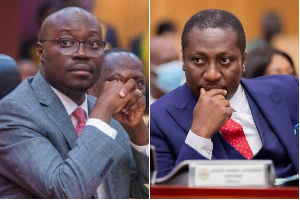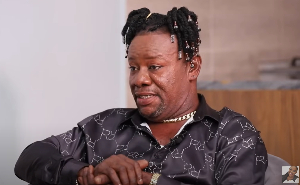Accra, Feb. 25, GNA - The Public Procurement Authority (PPA) has mapped out a three-year strategic plan that would enable it to integrate procurement reform into broader workings of the public sector.
The plan would, among other things, intensify supervision, monitoring and evaluation of public procurement across the various procurement entities, and sensitise all stakeholders about the guidelines and policies for public procurement in the country. Mr. Agyening Boateng-Adjei, Chief Executive of the PPA, announced this on Monday at a two-day sensitisation workshop on the budgetary process aimed at promoting accountability in the public sector under the auspices of the Ghana Journalists Association, the World Bank and Kab Governance Consult.
It is under the theme: "Strengthening Public Accountability through Improved Media Understanding of the Budgetary Process." The proposed plan also includes the strengthening of the Appeals and Complaints process of the Authority and promoting anti-corruption in the country.
Mr. Boateng-Adjei said integration of the process would broaden participation in implementing change to a large number of constituents and enable success in one to reinforce and catalyse success in other areas.
"When improvement in the procurement system is approached in this manner, procurement reform will be transformed from a technical and procedural reform to an effort that is critical to the overall success of a major national reform process."
According to him, all these would help maximise and sustain the gains of the reforms process in the public sector, as well as augment the two new reform strategies - Framework Contracting and Sustainable Public Procurement - introduced late last year.
Mr. Boateng-Adjei said the biggest challenge was the fiscal decentralisation character of the procurement process that had created capacity gap because at present, majority of procurement practitioners lacked the requisite expertise.
But, he said, the Authority was addressing this through the development of training modules.
Another challenge, he added, was the perception that government delayed in paying for contracts and therefore did not engage in public procurement.
Mr Boateng-Adjei said by making the procurement process an integral part of budgeting, the problem would be solved.
Some specific operation challenges he also touched on were deliberate project deliverables overruns which were characterised by cost escalations, especially interest on delayed projects which negate the attainment of value-for-money and development objectives. Others are failure to notify unsuccessful bidders of the award of contract; failure to abide by threshold requirements; use of specialised procurement such as restrictive/single sourcing without approval and the creation of artificial shortages of tender documents.
Business News of Monday, 25 February 2008
Source: GNA
















